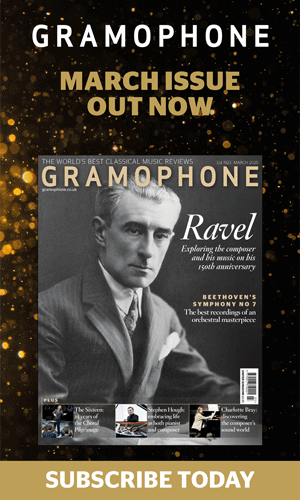Vote for Artur Schnabel!
Rob Cowan_2
Tuesday, March 19, 2013
The claim that performing composers often make the most compelling interpreters of the classics has rarely seemed more credible than in the case of pianist-composer Artur Schnabel, whose pioneering pre-war 78 set of Beethoven’s 32 Piano Sonatas (the first ever to be recorded) proves beyond doubt two key points: first, that there is no substitute for genuine musical intuition and second, that when it comes to slips of the finger the finest interpreters can allow themselves a certain amount of leeway.
The distinguished critic Harold C Schonberg referred to Schnabel as ‘the man who invented Beethoven’ and even the briefest of sessions with Schnabel’s records of, say, the ‘late’ sonatas (especially the 1932 EMI recording of Op 111) suggest that this pupil of the celebrated piano pedagogue Theodor Leschetizky had rather more of the music in his heart than under his fingers, though he wasn’t beyond the odd show of pianistic brilliance (ie, in his recording of Weber’s Invitation to the Dance). Schnabel’s impulsive style in Beethoven’s faster music, considered in the context of his skill at sustaining even the slowest tempos without losing control of musical line, approximates the effect of elevated improvisation. He was among the first pianists to reveal the profound core in Schubert’s late piano music (which he again pioneered on 78s) and his few poignant post-war recordings of solo piano works by Brahms are matchlessly idiomatic. His other issued commercial recordings include duplicate versions of all but the First of Beethoven’s Five Piano Concertos (some reissued on Naxos as Nos 1 & 2, 3 & 4, and 5), Brahms's First and Second Concertos, various works by Bach and selected Mozart concertos, mostly elegant and quicksilver, though the C minor Concerto K491 incorporates Schnabel’s own outlandish but highly stimulating cadenzas.
Schnabel was part of a piano quartet with the violinist Bronisław Huberman, the composer/violist Paul Hindemith and the cellist Gregor Piatigorsky, and his surviving chamber music recordings include duo sonatas with the cellists Piatigorsky and Pierre Fournier and the violinist Joseph Szigeti.
Schnabel’s strikingly modern-sounding compositions number among their ranks Three Symphonies, a Piano Concerto, a Piano Sonata and Five String Quartets. Among the most passionate of his present-day exponents is the conductor-violinist Paul Zukofsky who has recorded a number of Schnabel’s works.
Listening to Schnabel’s music is like taking a trip into exciting but largely uncharted territories, while listening to him play the great Austro-German classics brings you a step or two nearer to some key musical truths that most other pianists could hardly even dream of reaching.







